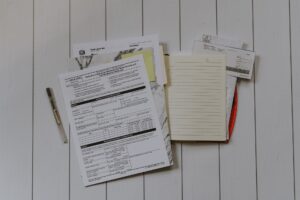Paying off a loan is a wonderful feeling. After months or years of debt, paying off a loan can feel like a light at the end of the tunnel. However, there are some common misconceptions about the effects a paid-off debt has on a credit score.
Many assume that when a debt is paid off, it boosts your credit score. However, there are times that paying off a loan can actually have a negative impact on credit.
Today, we will be talking about what happens after a loan is paid off and what effects it can have on credit.
Revolving Credit vs. Installment Loans
To understand how credit is affected by a paid-off loan, it is crucial to understand the difference between the two types of credit. Credit cards fall into the category of revolving credit. If you pay off a credit card, the account stays open, even if you owe $0 after the payment. The amount owed is constantly in flux, going up one week, getting paid off, and dropping back down, then rising again. As long as the credit card is being used, that line of credit will stay open.
This is good for your credit score; the more credit accounts you have, the more diversified your credit looks, and the higher your credit score will be.
However, installment loans are a different type of credit. Like a line of revolving credit, a loan for a car or mortgage looks good for your credit, as it diversifies your credit portfolio and makes your credit score higher. Creditors especially like to see people with a mix of revolving credit and installment loans. However, unlike a credit card, when you pay off all the installments of your loan, the account is closed. When the account closes, that means one less account that is diversifying your credit. Hence, a lower credit score.
This isn’t to say that you shouldn’t pay off your loan. If you pay off your loan during the agreed-upon amount of time, it looks great for your credit. In fact, 35% of your credit score is based on timely payments. If you pay on time every month for five years, your credit score will soar. While your credit score may drop slightly after the last payment is resolved and the account closes, your score will have built up five years of timely payments in the process.
Paying Off a Loan Early
It may be tempting to try and get a loan paid off ahead of schedule. It may also save you some money on interest. Before accelerating your payments, make sure you understand the downside.
If you agree with creditors on a specified amount of time, creditors rely on the interest that builds over that period. Getting out of that agreement with accelerated payments creates instability in your credit, which may make your credit worse.
It is also important to remember that having an old line of credit boosts your credit score. If your oldest account is a mortgage from 10 years ago, that may be the biggest boon to your credit. However, if this loan is suddenly paid off, you no longer have an old line of credit, reducing your credit score.
There may also be fees attached to getting out of debt early. Many creditors do this to offset their losses on the potential interest they were scheduled to gain on your loan. Check with your creditor for details on early payment penalties.
Is It Still Worth Paying Off Debt Early?
As with most things, it all depends on your situation. Despite potential hits to your credit score, paying off your debt early may still be the right option for you. In most cases, the hit to your credit is temporary and can be brought back up fairly easily.
If you intend to pay off a debt early and are anticipating a hit to your credit, consider taking the following steps to build your score back up.
- Be smart about which debts you pay off. Pay close attention to what has the highest interest rates. Paying off credit cards will not only help you save money on interest, these are also the accounts that stick around after they get paid off, which will keep your diversity of credit high.
- Use less of your credit. Credit utilization is another way credit scores are graded. This refers to the percentage of total credit available that is being used. For example, spending $300 when you have a limit of $500 looks much worse than when you spend $300 with a $5,000 credit limit. Spending less with your credit cards is an easy way to boost credit scores.
- Open more lines of credit. Getting a new credit card can temporarily bring your score down, as there may be a credit inquiry. Having more credit cards or loans, though, will mean that your credit profile is more diverse, bringing your score up in the long run. Plus, you’ll have a higher limit of credit at your disposal, so your utilization of credit will be lower.
We hope that this information on credit will help you in your financial journey. Every debt situation should be handled with careful consideration. Keep in mind that what may be right for one person may not be true for another. Talk with a professional to best understand how to navigate your unique situation.








